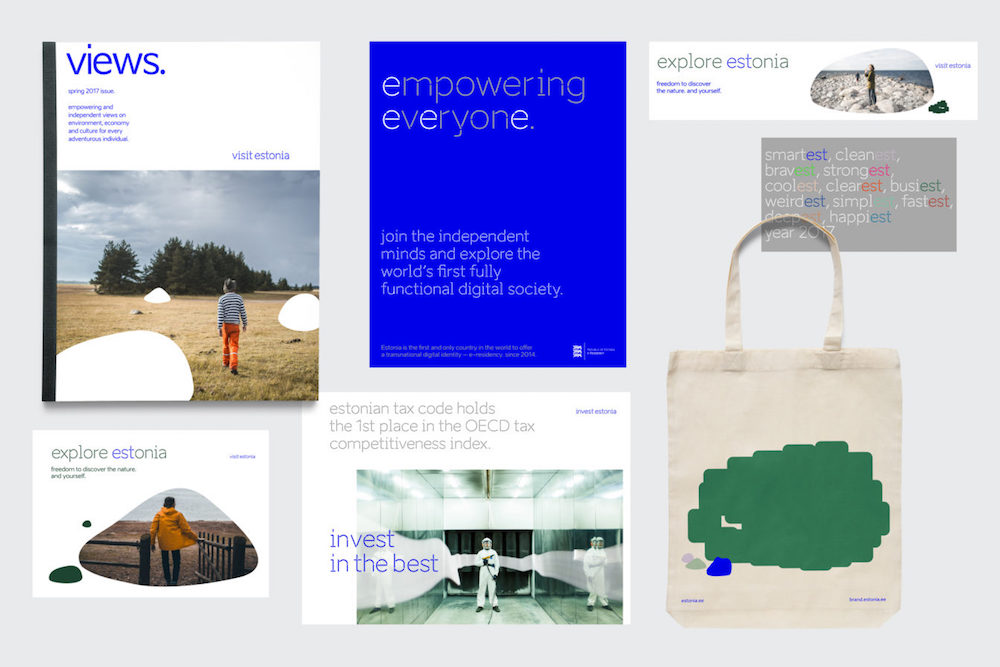For years, Estonia has experimented with expanding their territory via the internet. You can become an “e-resident” of this small, friendly European country. But that’s not enough for Estonia — no, Estonia continues to innovate! Now they’re planning to export their brand:
We have built one of the world’s most advanced digital societies and are offering our country as a service. Estonia also means a clean environment, Arvo Pärt, our president and startup hubs, largest gender pay gap in the EU, UNESCO heritage and sky-high CO2 emissions — all the good and the bad. No logo would do us justice. Instead we have a lot of interesting stories and a clear vision.

Estonian visual asset.
I find Estonia’s eagerness charming, but also cringeworthy. The self-deprecating faux-pride about their gender pay gap and CO2 emissions is off-putting. Nevertheless, I’m intrigued by Estonia’s effort just like I’m intrigued by seasteading and Liberland. More people and institutions should be attempting to invent less arbitrary forms of nationalism.
Estonia’s oddball expansion feels like the flipside of John Perry Barlow’s infamous vision for the internet:
Governments derive their just powers from the consent of the governed. You have neither solicited nor received ours. We did not invite you. You do not know us, nor do you know our world. Cyberspace does not lie within your borders. Do not think that you can build it, as though it were a public construction project. You cannot. It is an act of nature and it grows itself through our collective actions. […]
Cyberspace consists of transactions, relationships, and thought itself, arrayed like a standing wave in the web of our communications. Ours is a world that is both everywhere and nowhere, but it is not where bodies live. […] Your legal concepts of property, expression, identity, movement, and context do not apply to us. They are all based on matter, and there is no matter here.
He was mostly wrong — but a little bit right. See “The Cyberpunk Sensibility” for my take on that.




